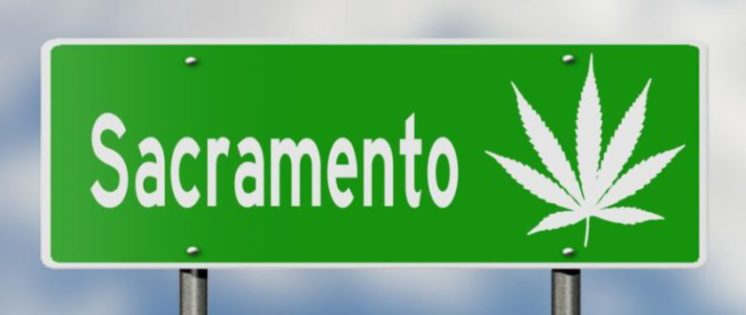The County of Sacramento, California, has a population of over 1.5 million. (Sacramento County Census.) 54% of the voters of the County approved the legalization of cannabis (The Adult Use of Marijuana Act (AUMA) Proposition 64) on November 8, 2016. (California Proposition 64 County Results.)
The City of Sacramento represents nearly 1/3 of the total County population (Sacramento City Census) and the City of Sacramento is the only city in the County accepting cannabis permit applications for indoor and mixed light marijuana cultivation, non-volatile manufacturing, testing laboratories, delivery-only (non-storefront) dispensaries, and distribution. There are currently 30 permitted medical cannabis dispensaries, with 11 also having a cannabis license for adult marijuana use. The City is not accepting any cannabis permit applications for additional dispensaries at this time. (Sacramento City Cannabis Permit Process.)
The majority of other cities in Sacramento County (representing slightly less than 1/3 of the population of the County – City Census Data) Citrus Heights, Elk Grove, Folsom, and Rancho Cordova, have adopted complete bans of commercial cannabis businesses.
Despite the fact that the majority of Sacramento County voters approved Proposition 64, the County Board of Supervisors also adopted a ban on commercial marijuana businesses by a 3-2 vote. (Sacramento County Board of Supervisors Action Summary Marijuana Ban.)
It is apparent that the County of Sacramento and most of the County’s cities are struggling with meeting the expectations of their constituents in cannabis regulation and taxation.
In the latest example, even the City of Sacramento, which took the first steps in creating a local cannabis economy, hesitated in permitting the first licensed temporary cannabis activity at the Cal Expo Fairgrounds.
On April 24, 2018, the City of Sacramento considered a temporary permit process resolution to allow the City Manager to license temporary cannabis events. The City Council continued the item, without any discussion, jeopardizing the potential success of the first-ever Sacramento located Central Valley High Times Cannabis Cup scheduled for May 4-5, 2018. The policy proposed on April 24, was not limited to just the upcoming event, but to any temporary cannabis event in the City. (Sacramento City Council Report re Local Approval for Temporary Cannabis Events at Cal Expo.) The continuance may have been influenced by a decision of the City of San Bernardino to deny a temporary permit less than 48 hours before the High Times 4/20 Cannabis Cup event the week before. The 4/20 Cannabis Cup event proceeded without the sale of cannabis at the event.
On May 1, 2018, less than 72 hours before the start of the Central Valley High Times Cannabis Cup, the Sacramento City Council considered an agenda item limited to only the upcoming High Times Cannabis Cup Central Valley event. High Times CEO Adam Levin spoke at the meeting.
After more than two hours of robust debate, the Sacramento City Council approved the temporary City cannabis event permit for the Cannabis Cup at the Cal Expo Fairgrounds.
Contact us to learn more about California state or local cannabis regulations, cannabis regulatory compliance, and cannabis litigation.

